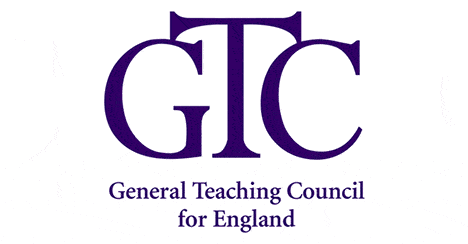This blog was originally posted on Ross McGill’s blog (@TeacherToolkit) and was originally written by Derek Bell for the College of Teachers
Few people, if any, would argue against the need for a high quality, high status teaching profession. Indeed in today’s complex world with all its pressures, constraints and opportunities, the imperative has probably never been greater. The question is: how can we raise the status of teaching as a profession?
Having witnessed the introduction, establishment and then abolition of the General Teaching Council for England (between 1998 and 2012), which set out two aims:
- “to contribute to improving standards of teaching and the quality of learning, and
- to maintain and improve standards of professional conduct among teachers, in the interests of the public.”
…we are now left in a quagmire with no firm hope for the teaching profession. Only undercurrent ripples of anticipation, ebb away in discussions at the higher-echelon levels of union, government and sundry committee boardrooms. But what about grassroot classrooms across the country?
As well as the GTCE, many other education quangos in 2010 were culled (full quangos list); including most recently, the ‘green-light’ to employ teaching staff without QTS (Qualified Teacher Status). The teaching profession has never needed a firm hand to stranglehold.
Without a nationally recognised and useful forum to shape and direct the profession, policies; pedagogy; teacher-training and professionalism will be left in the hands of the DfE to tyrannize. I recently said in a guest-post for @LabourTeachers (March 2013), that teachers need to Ignore the DfE: Teachers are doing it for themselves! and take control of their own.
Tim Brighouse and Bob Moon have also supported this through the New Vision for Education Group here, but I remain unconvinced. If current classroom practitioners do not sit on their committee or in other similar bodies; to help steer the vision for the profession, then championing the call for a Royal College of Teachers will remain a pipe-dream and nothing more. What chance have I got as a classroom practitioner to embrace yet another top-down structure?
.
Well, what I’d like to suggest, before leading into this guest-post by the Royal College of Teachers; is that any Royal College of Teachers should support the whole teaching profession; not just teachers in schools, but also HE lecturers, industrial trainers, tutors, peripatetic teachers; everyone! From grass-roots up! And that we should all be part of that process, from its introduction and establishment, to its eventual custom that we hope may be embedded, into all teacher-speak across the land.
The College are running a Professional Development Masterclasses in May and June. This is a great opportunity for interested teachers to meet existing staff of The College. For booking information, you can find out more at this link.
Ladies and gentleman: Stand up and be counted; I give you, a national Royal College of Teachers!
(Foreward above by @TeacherToolkit)
Raising the status of the teaching profession – towards a royal college of teaching?
The launch on Tuesday (30th April) of the booklet – Towards a Royal College of Teaching: raising the status of the teaching profession – brings into the spotlight the discussions that have been going on in various places for some while. The purpose of the booklet, compiled by an editorial team led by Charlotte Leslie MP, a member of the Education Select Committee, is to examine the idea of a royal college of teaching. The wide range of contributions addresses many of the issues from different perspectives but all point in the same direction – a royal college has a great deal in its favour. Others agree.
Published 30th April 2013 – download here
Ministers in the DfE have indicated general support for the idea of a Royal College, but are very clear that any such development must come from the profession and be independent of government. However, if a Royal College comes from the profession, it should include teachers in all forms. Teachers are found in formal and non-formal settings including schools, colleges, universities, hospitals, businesses, factories, homes, military establishments and youth groups. A Royal College of Teaching should therefore represent and support the whole of the teaching profession, not simply teachers in school buildings.
Teacher Unions have also shown interest in the Royal College proposal. Indeed writing in the TES[1] Mary Bousted (General Secretary of the ATL) and Russell Hobby (General Secretary of the NAHT), included “A Royal College of Teaching, created and run by teachers,” as one part of their four-point plan for the future of the teaching profession.
 “…work with the government, to promote teachers’ professional development…”
“…work with the government, to promote teachers’ professional development…”
More recently the Academies Commission in its report[2] in January 2013 recommended that, “The DfE should pump-prime the establishment of a Royal College of Teachers that would be independent from, but work with the government, to promote teachers’ professional development, provide evidence to inform education policy, align practice and research and promote peer-to-peer collaboration.”
Independently, a group of head teachers asked the Prince’s Teaching Institute (PTI) to host an exploratory workshop to discuss the idea. The key outcome of this workshop, was the proposal that the PTI act as honest broker to establish a group, to explore the potential and feasibility of setting up a Royal College or similar body. An independent Commission has now been established and it formally commenced work on 7 March 2013.
In parallel, the existing College of Teachers (COT) has adopted a very positive and proactive approach to the initiative and is contributing extensively to the debate in a variety of ways, including contributing to the publication of the book mentioned above and membership of the independent PTI Commission. It has made a clear statement of its own position on the idea of a royal college in a special edition of its journal Education Today – published March 2013, which also includes a series of articles that offer further perspectives on the role, a royal college might play in raising the status of teaching.
 Discussion: “…the last thing we need at this, or indeed any stage, is fragmentation and the formation of splinter groups…”
Discussion: “…the last thing we need at this, or indeed any stage, is fragmentation and the formation of splinter groups…”
Currently, these groups are in contact and are working together in order to stimulate discussion more widely and to explore possible models and the feasibility of such a body. This is important because the last thing we need at this, or indeed any stage, is fragmentation and the formation of splinter groups. Neither do we want to create another organisation that simply adds to the current crowded landscape.
To date, there is a long list of things that a Royal College ‘might do’, but we have to be clear, that it can’t do everything. Indeed, there are things that it should not do; specifically, activities that rightly sit with trades unions such as pay and conditions and other employment matters.
There is widespread agreement that it should promote the professionalism of teachers and, among other things:
- ensure high quality professional learning;
- provide stability through changes in political cycles;
- promote evidence-based initiatives;
- bridge the gap between classroom practice and research;
- establish an authoritative voice on professional standards;
- raise the status of teaching as a profession.
We know there are obstacles to overcome and setting up a Royal College will take time. We need to ensure that there is as wide a consultation as possible in order to ensure that, if a Royal College is established, it genuinely does come from the teaching profession.
So why not join in the discussions? As a start go to http://www.teacherdevelopmenttrust.org/rcot/ to access the booklet and provide feedback on the issues it raises and the ones it doesn’t!
Derek Bell is a Professor of Education in The College of Teachers, having worked in schools, colleges and universities and being Chief Executive of The Association for Science Education.
You can follow the Royal College of Teachers at @CollegeOfTeach
Written by Derek Bell and edited by @TeacherToolkit.




